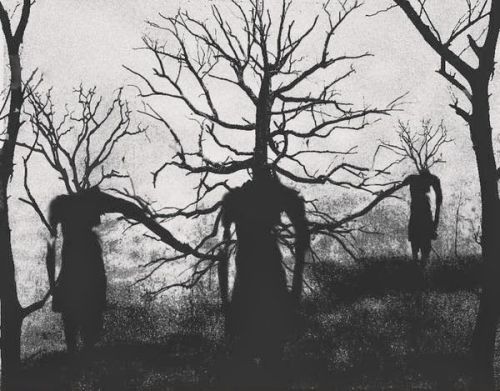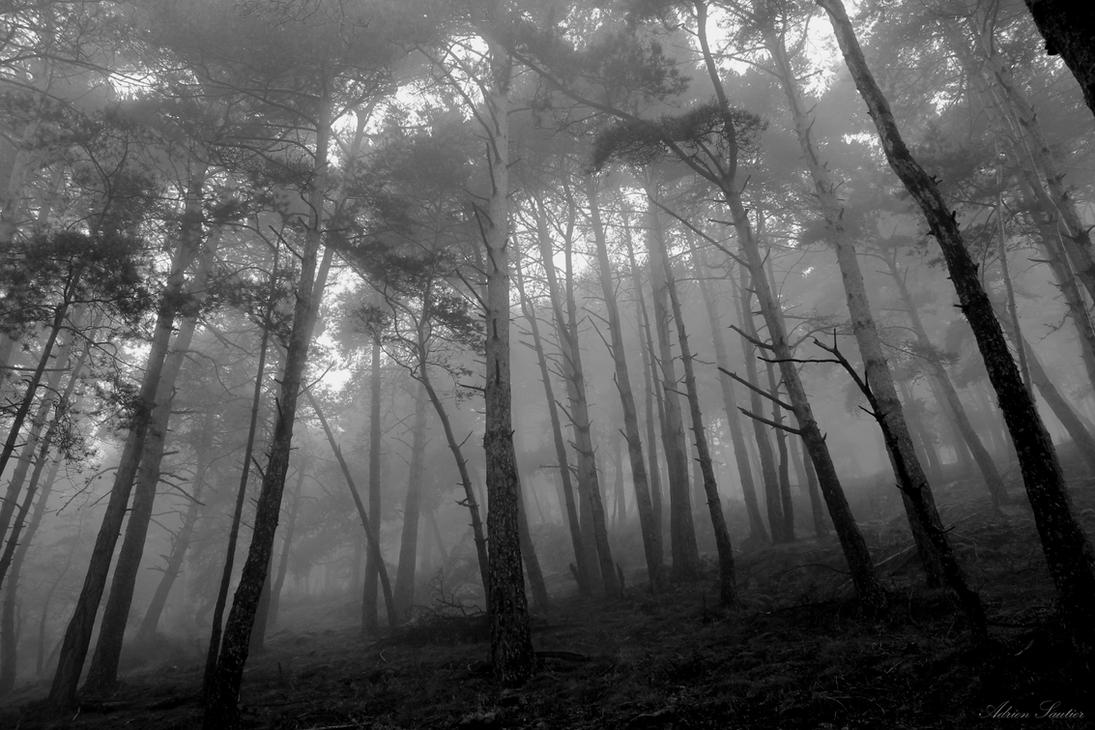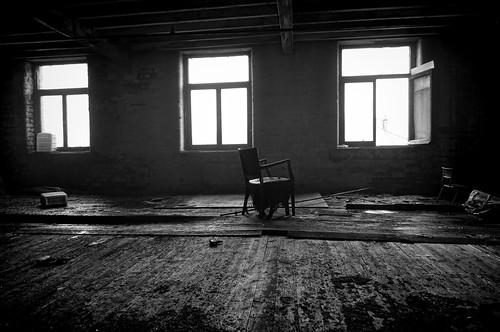Cormac McCarthy's The Road begins in media res with the man
waking up from a horrifying dream and checking to make sure his son, the boy,
is okay. The man lets the boy sleep and when he awakes they continue their
journey along the road. They travel for a while before coming to a gas station
and making sure their gas canisters are full enough. During a moment of
reflection, and seemingly a moment of realisation, the man briefly remembers
his childhood on his uncle's farm. The boy is very weak and the man is ill, but
they continue along the road with intentions of finding somewhere safe. The man
sometimes has vivid memories of his wife, although they may not be completely
realistic and slightly fantasised, suggesting his mentally is deteriorating.
After the finding a deserted city full of 'mummied dead' they find a house in
which they reside for a few days.
In the setting of the novel a reoccurring theme seems to be
memories and the idea that the man is reflecting on his past at times along the
road which are most dull and depressing. His first 'reflection' is of his
uncle's old farm, when the man was a child. He seems to remember his childhood
vividly, going into depth on the uplifting memories he still dearly beholds,
'this was the perfect day of his childhood'. His memories seem to always be
bought about by a trigger or something particularly bad which makes him try and
think positively, ultimately leading him to think of memories from the distant
past. For example before he flashes back to his memory of his childhood himself
and the boy had just come across a burnt out city full of corpses, ash and
dust. The man's second memory/flashback is of his wife as a
'bride'. He memorises her in all her beauty reciting her 'dress of gauze' and
'her hair carried up in combs of ivory, combs of shell'. In the silence of the
night while the boy is sleeping this memory comes upon the man, after which
McCarthy says that the man 'mistrusted all of that'. In a daze due to hunger
and illness the man over accentuates his memories and even begins to doubt them
himself.
Furthermore, another key theme seems to be the sense of
decay, both physically and mentally for the man, the boy and the world they now
find themselves in. At the very opening of the book McCarthy describes the long
days like 'the onset of some cold glaucoma dimming away the world'. This
description is significant and is a theme continued throughout the whole novel.
The use of the word 'glaucoma' suggests that the man and boy are slowly losing
'sight' of everything in the world, inferring that they have no way out and are
trapped within the slowly dying world. However, it could also infer that the
world itself is slowly losing meaning and vision as everything on Earth is
slowly dying; people, trees, animals etc. With use of the word 'dimming' in the
same sentence, McCarthy manages to suggest that the glaucoma disease is
affecting the man and boy spiritually, not only dimming their 'metaphorical
vision' but also dimming their hope and morale. Moreover, uses of words and phrases such as a 'barren'
landscape, 'dead trees' and the 'stale smell' of gas reinforces the idea that
Earth is slowly decaying, eventually leaving nothing left to help the man and
boy to survive. Therefore the characters seemed trapped within the dying world
as they have got no control over the decaying atmosphere.
Death is a theme which continues the novel and follows
through most aspects of the man and boy's journey. In the opening pages of the
novel, before any real connection is made properly with the characters the boy
is questioning his father on death, 'what would you do it I died?' 'If you died
I would want to die too' 'So you could be with me?' The young boy has known of
death and destruction to his and his father's life, as his mother cannot face
the world anymore and kills herself, although at this point in the novel that
is not made clear. There is constant mention of the 'pistol' which the man
carries on him or insight of him at all times. This is a sense of security for
the man, to ensure that himself and the boy are always safe. The two bullets
left in the pistol are for suicide, but possibly for any 'bad guys' they come
upon, although the man would prefer not to do this.
Finally, the colour imagery used in the opening of the novel
manages to set a dark picture of the Earth and road the man and boy are
travelling along. For instance, the days are constantly described as 'dark' and
'grey', setting a consistent theme throughout the whole novel. In these first
few pages the colour imagery is used to give the reader an insight into the
devastation of the world, with constant reference to the colour 'grey'.
However, during the man's flashback to his childhood, spent on his uncle's
farm, the colour imagery is very contrasting to that of the current setting of
the road. For example, the leaves are described as 'yellow' which symbolises
happiness of the memory for the man. As well as suggesting that his childhood
memory was from the 'autumn' season with the inference 'blowsy plumage in the
still autumn air.' This is a contrast to the dark and dull, wintery setting
that the man and boy find themselves presently in on the road.










